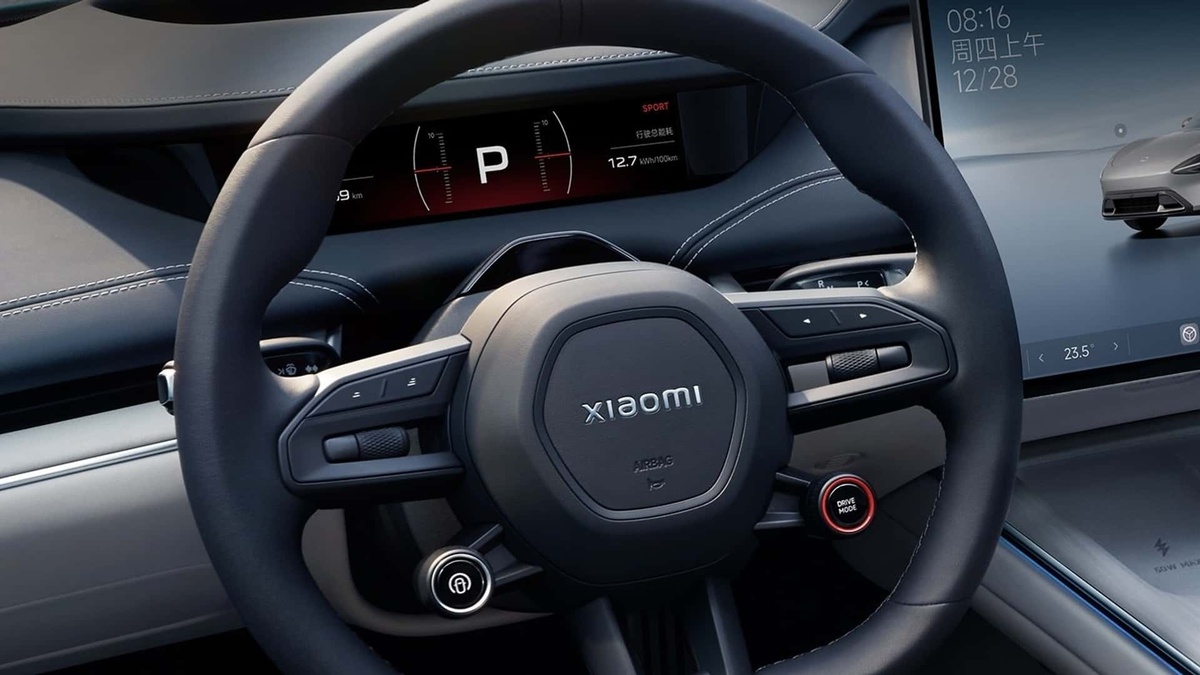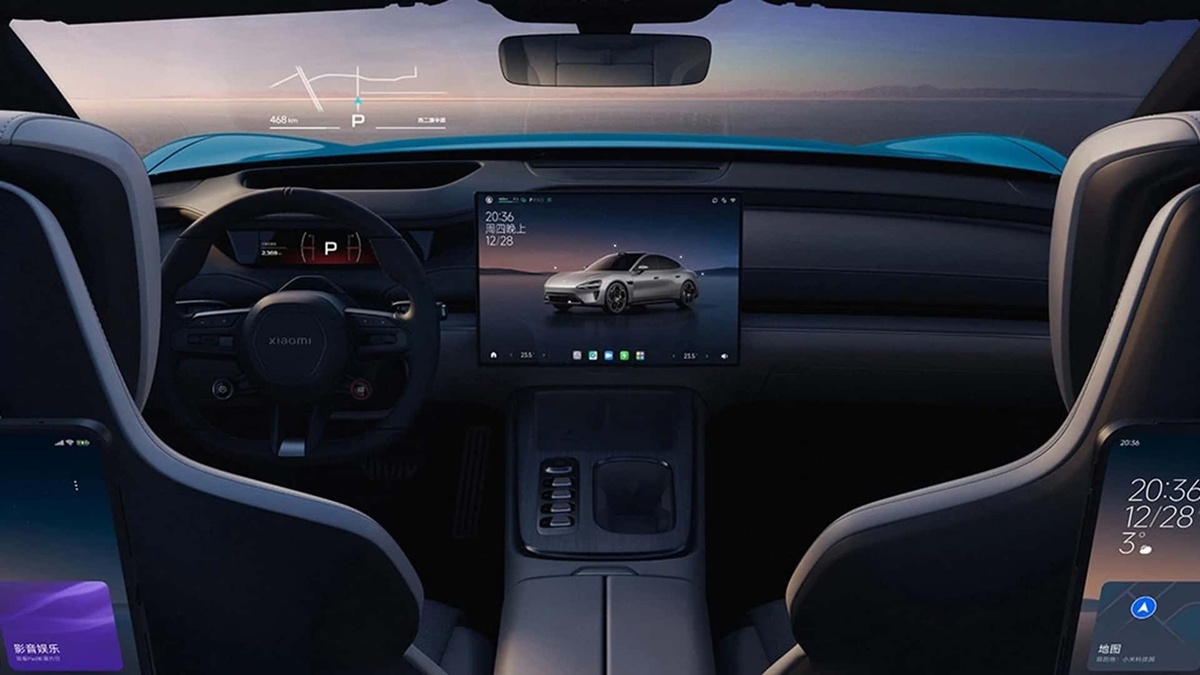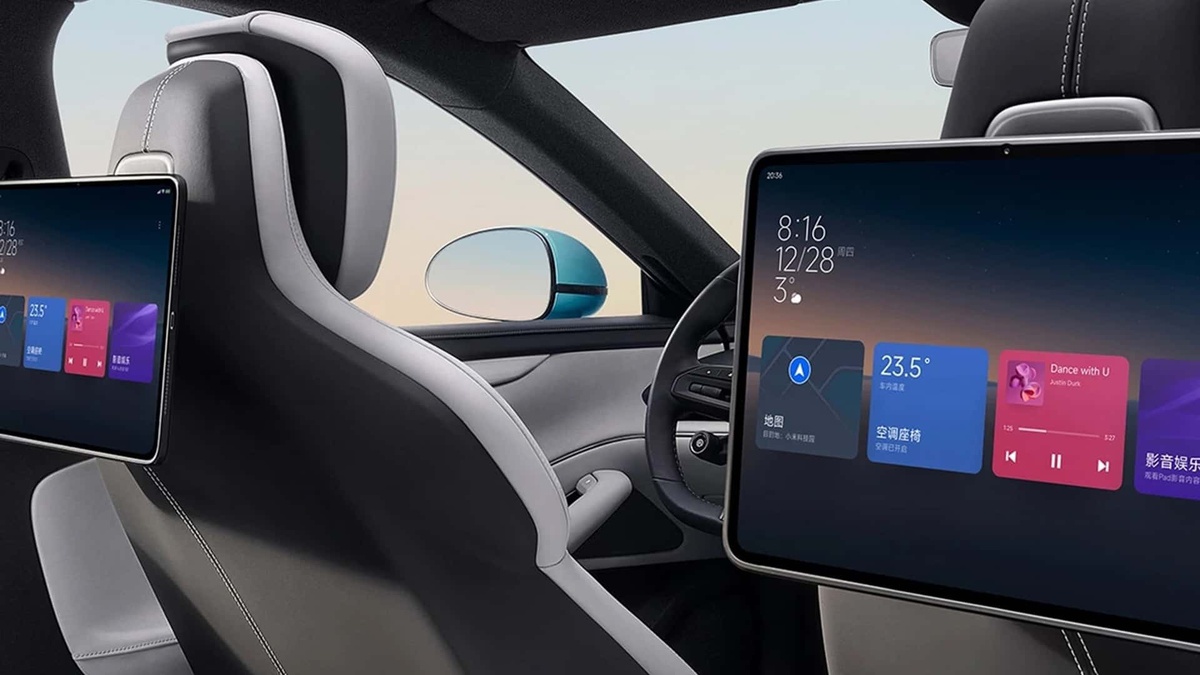The Xiaomi SU7 quickly garnered attention with 50,000 preorders placed within just 27 minutes of launch. The initial 10,000 reservations were snapped up in the first four minutes. Buyers had to pay a reservation fee of $691 (5000 RMB), which is non-refundable after seven days.
Xiaomi, primarily known as a Chinese smartphone giant that competes with Apple and Samsung, has now ventured into the electric vehicle industry. The SU7 model integrates seamlessly with Xiaomi’s existing line of phones, tablets, and connected devices. It features self-developed electric motors and sources batteries from prominent suppliers BYD and CATL. Except for the base model, all variants boast an 800V charging architecture.








Xiaomi SU7 EV
The SU7 comes in three trims: Standard, Pro, and Max. The Standard is priced at $29,990 (215,900 RMB) with specs including a single-motor rear-wheel drive (RWD), 295 horsepower, and a range of 700 km (343 miles) per charge. The Pro variant costs $33,990 (245,000 RMB), offering faster charging speeds that can recover 508 km (316 miles) in just 15 minutes. At the top end is the Max trim priced at $41,500 (299,900 RMB). It delivers dual-motor all-wheel drive (AWD), 663 horsepower power output showcasing superb performance metrics like 0 to 100 km/h in just 2.78 seconds.
Comparatively speaking, the base SU7 Standard undercuts Tesla’s Model 3 by $4,000 in China's market. Interestingly, the mid-grade SU7 Pro is priced identically to Tesla's standard range rear-wheel-drive Model 3 but offers better features and performance.
Xiaomi SU7 specs and prices:
| Name | Drive Type | Battery Capacity (kWh) | Range (km/miles) | Price |
|---|---|---|---|---|
| Standard | RWD | 73.6 | 700 km (343 miles) | $29,990 (215,900 RMB) |
| Pro | RWD | 94.3 | 830 km (515 miles) | $33,990 (245,000 RMB) |
| Max | AWD | 101 | 810 km (503 miles) | $41,500 (299,900 RMB) |
Xiaomi's aggressive pricing strategy for its EV lineup could reshape consumer expectations and demand within the sector. By delivering high-spec vehicles at competitive prices akin to Chevrolet Bolt but with features surpassing Tesla’s offerings serves as an undeniable signal that Xiaomi is not entering this market lightly.
The company has been strategically laying the groundwork for this dramatic entrance into EVs through its existing ecosystems of smart devices and tech innovations. With their reputation for disrupting established markets by offering high-quality products at lower prices than competitors’, Xiaomi's latest move could very well redefine what consumers expect from electric vehicles both in terms of capabilities and cost.
Source: InsideEVs

